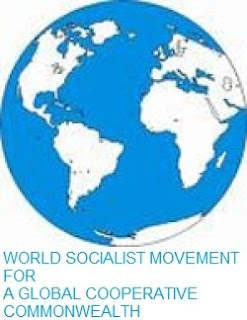The term commonwealth came into popular usage during the 17th C English Revolution when the monarchy was deposed and a republic was declared.
Although the word commonwealth had no connection with the idea of wealth held in common, many radicals such as Gerrald Winstanley and the Diggers saw that it had a deeper meaning reflecting the new models of community they sought to build and not just a new model army.
It was a word to be later adopted in later revolution when the new United States of America accomplished their independence British colonialism. This framing of the states as a commonwealth derives from language of 17th-century thinkers like Thomas Hobbes and John Locke and refers to the goal of creating a political community for the common good, a formulation of a constitution.
Massachusetts, Kentucky, Pennsylvania, Virginia, and two U.S. territories, Puerto Rico and the Northern Mariana Islands, all call themselves commonwealths in the formulation of their constitutions.
Now another American state to be described as a commonwealth if statehood is granted to Washington DC.
The would-be 51st US state will be officially titled the “State of Washington, Douglass Commonwealth”
Socialist commonwealth, cooperative commonwealth
It was related to commonweal – that is, the common well-being or the public good, a term resurrected by William Morris for the ‘Commonweal’ journal of the Socialist League.
The idea of an economic system based on cooperatives has also found a more receptive hearing. America has known many utopian schemes that had co-operatives as its basis.
Member of the national executive committee of the Socialist Labor Party, Laurence Gronlund wrote the "Co-operative Commonwealth," a vision for a cooperative economy and society echoed over the next decades in early-twentieth century U.S. and Canadian leftist circles.
There have been political parties that have promoted co-operatives as policy. In the 1930s, the populist Farmer-Labor Party could issue a radical platform:
“We declare that capitalism has failed and that immediate steps must be taken by the people to abolish capitalism in a peaceful and lawful manner, and that a new, sane, and just society must be established, a system in which all the natural resources, machinery of production, transportation, and communications shall be owned by the government and operated democratically for the benefit of all the people, and not for the benefit of the few. Palliative measures will continue to fail. Only a complete reorganization of our social structure into a cooperative commonwealth will bring economic security and prevent a prolonged period of further suffering among the people.”
In Washington state the Washington Commonwealth Federation, based on similar ideas, won control of the state Democratic Party during the late 1930s and early 1940s. In a parallel development in Canada, the Cooperative Commonwealth Federation (CCF) was formed with some prominent Socialist Party of Canada members joining.
An alternative term for the society socialists aspired towards has been “cooperative commonwealth”.
Today, having fleshed-out their own visions of the Cooperative Commonwealth, Richard Wolff and Gar Alperovitz have been getting a lot of exposure on the alternative media websites for their own “radical" models for a co-operative economy. But exactly what is there in their proposals to get excited about? They insist that they are challenging capitalism by presenting alternatives to capitalism, but in the end all they offer are prescriptions for curing capitalism. In their mythical “market-socialism” workers would be self-exploited.
Co-operatives are still capitalist institutions i.e. capital - even if it's "collective" or "democratic" or "social" capital - is invested to make more capital. Cooperatives that exist under a market economy inevitably replicate the problems of capitalism due to market pressures as Chomsky points out, as well as Marx’s criticisms of them.
"First, you can’t “out-compete” capitalism. Corporations will always have larger capital to invest in research, technology, and their willingness to cut costs through lower wages, less environmentally sounds practices, out-sourcing, etc, will give them an advantage.
Second, is that co-operatives are subject to market pressures to compete just the same as capitalist enterprises and this lends itself to pressures to create the same practices of corporations."
Third, is that many cooperatives face the same issues as small business owners face. Often worker cooperatives are in the service, food or other speciality industries with lower profit margins and because they are smaller and do not have the advantages of scale which larger companies do.
Lastly is the tendency of worker co-operatives to see their needs and interests as an entity apart from and/or above other workers. After all, as cooperatives exist within a market system, their interests are to compete with other companies and expand their market share."
The pioneer of American socialism Eugene Debs would use the phrase “cooperative commonwealth” as a synonym for a socialist society. It became the name of the federation of a fairly successful Canadian reforming party
A use of it by Von Mises in his book ‘Economic Calculation in the Socialist Commonwealth’
In the late nineteenth and early twentieth century, however, commonwealth was widely used by opponents of capitalism to refer to their ideal post-capitalist society. The noun was usually combined with a clarifying adjective to form the phrase the socialist commonwealth or the cooperative commonwealth. Sometimes, however, the future society was called simply the commonwealth. This, for example, was the name of a weekly newspaper published by the Socialist Party of Washington (the state) from January 1911 to April 1914.
Nowadays the Commonwealth most often refers to the association of former British colonies. We share a vision of a real "commonwealth”. It means a global system of society where all wealth is held in common and is democratically controlled by all people. It is a society from which borders and frontiers, social classes and leaders, states and governments have disappeared, in which production is geared to meeting needs, not profit, and in which people give of their abilities and have free access to the benefits of civilisation. This is the real "commonwealth" socialists look forward to.


No comments:
Post a Comment